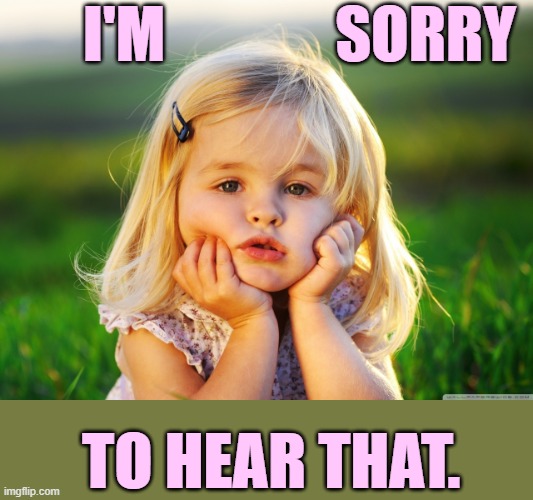
If Only Pouting Might Help Imgflip
"You have my sympathies" is a professional way to say "sorry to hear that." It is a very useful phrase that shows you regret hearing some bad news in a formal capacity. For instance, you might include it when someone has told you they need time away from work.

I'm sorry to hear that
It's a good way to apologize or show regret after receiving some bad news from an employee or colleague. While it's a good formal option, it's not always friendly. "Sorry to hear that" doesn't show genuine regret for someone's situation. Don't get us wrong; it's still polite.

sorry to hear that.
'Sorry to hear that' is a phrase that implies that the speaker is extending their condolences to the person they are talking to or to convey empathy in the face of something unfortunate or regrettable they have just been told. There are two primary ways that this phrase can be used.

I’m sorry to hear that. (Showing kindness and sympathy in conversations
The answer lies in our list of "10 Professional Ways to Say 'I Am Sorry to Hear That'". This guide will provide you with tactful and sincere alternatives that lend more depth than your standard responses while maintaining an air of professionalism. Expressing Sympathy

I'm sorry, I can't hear you I'm getting a lot of bullshit on this line
B: I'm so sorry for your loss. My heart goes out to you and your family during this difficult time. If there's anything I can do to support you, please let me know. 9. That's so sad to hear 'That's so sad to hear' expresses empathy and shows that you are affected by the person's unfortunate news.

This Scrapper's Corner Art Journal pages 2 and 3
1. I extend my condolences (upon hearing your unfortunate news). I was so sorry to hear that your mother passed away, Jan. Please let me know if there's anything I can do for you.A: "I actually lost my job last week." B: "Oh my gosh. I'm sorry to hear that!"Oh my gosh, I'm sorry to hear that you broke your arm! What happened? 2.

I'm so sorry to hear that.
an expression of consolation or regret. John: My cat died last week. Jane: I am sorry to hear that. Bill: I'm afraid I won't be able to continue here as head teller. Bank manager: Sorry to hear that. See also: hear, sorry, that, to McGraw-Hill Dictionary of American Idioms and Phrasal Verbs. © 2002 by The McGraw-Hill Companies, Inc. See also:
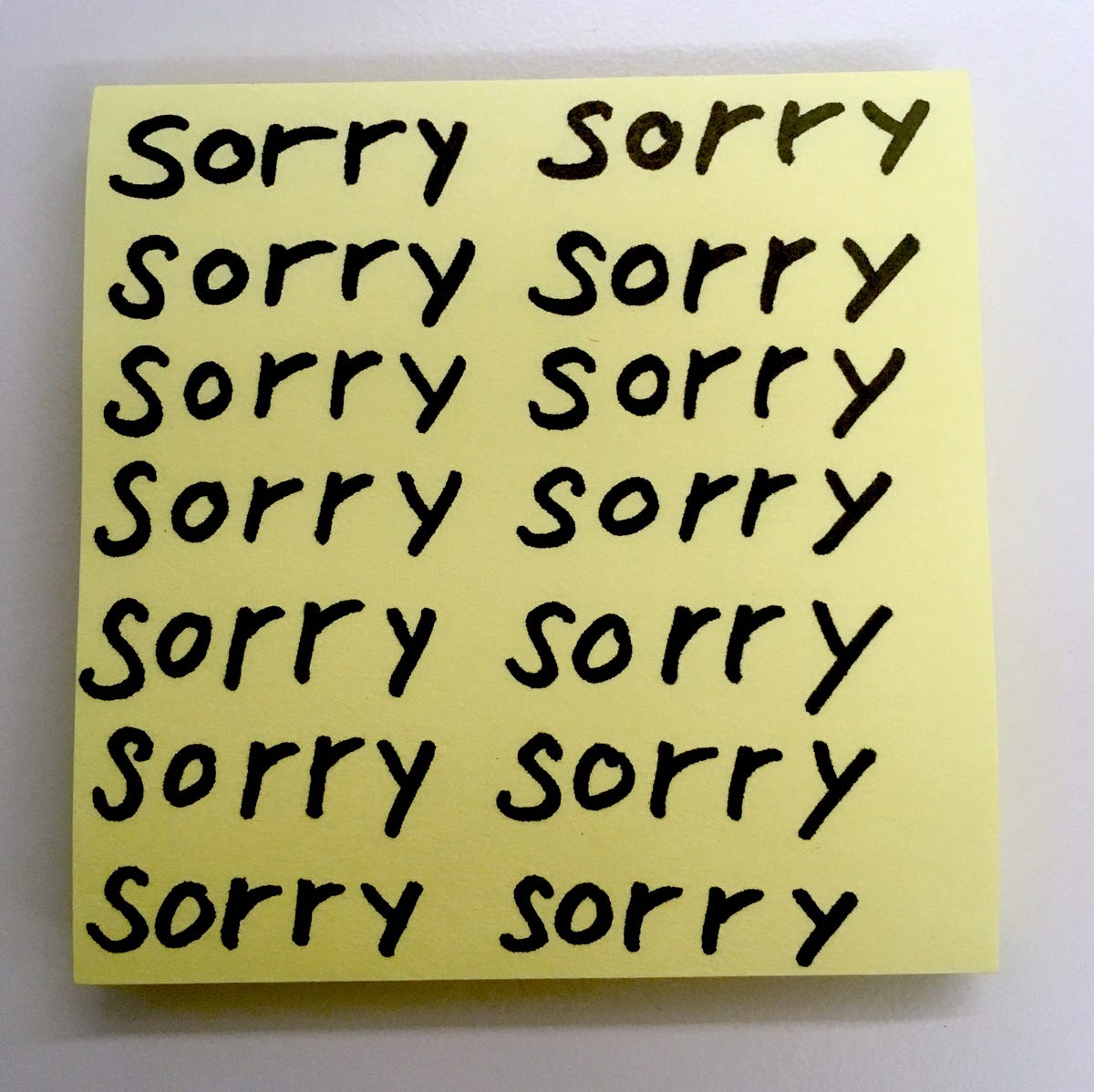
Sorry, Not Sorry — You Need to Hear This Piece of Advice by Betty Liu
1. I'm So Sorry "I'm so sorry" might look like a simple synonym, but it's a great choice. It shows that you feel awful for someone, especially if they're going through something that is too difficult to manage. I'm so sorry. I have absolutely no idea how awful that must feel for you. I wish there was something I could do. I'm so sorry.

Picture Profile and Animated Picture Profile im sorry to hear that
"Sorry to hear that" is a phrase you can use to express sympathy. It's usually offered as a reply when someone tells you sad or unpleasant news. [1] Here are some examples of "sorry to hear that" in conversation: Person 1: "My girlfriend just broke up with me last night." Person 2: "Oh no, I'm sorry to hear that! I know you really cared about her."
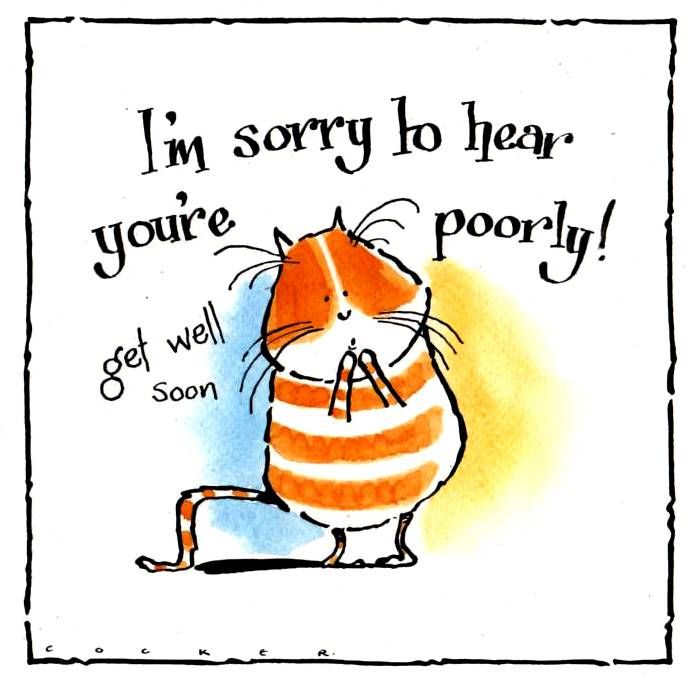
Sorry To Hear
2 Answers Sorted by: 7 Yes, it's idiomatic to use sorry to hear that in this sort of context. In fact, you could argue that it's more prevalent than saying sorry for that. Another common phrase is sorry about that.

Creative Happenings Sorry to hear your bad news
I said "Sorry to hear that" after my friend got some. a. upsetting news. b. exciting news. c. unimportant news. Contributor: Matt Errey. Next conversational phrase: sorry to say.

So sorry to hear that
"Sorry to hear that" means expressing sympathy or empathy for someone else's unfortunate situation or news. What Does "Sorry to Hear That" Mean? The phrase "sorry to hear that" shows that you feel sympathy or empathy when someone shares bad news or an unpleasant experience.
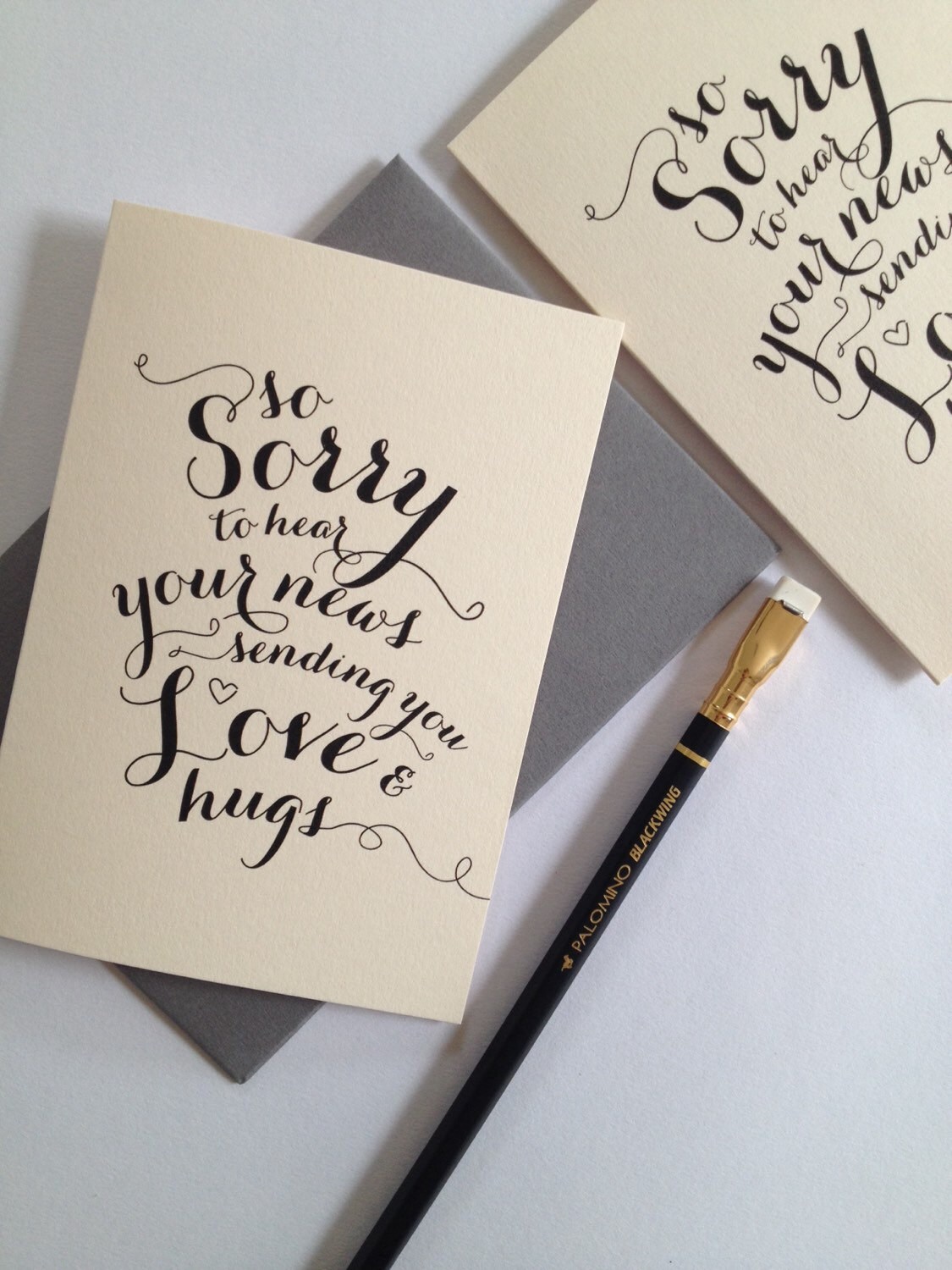
So Sorry to hear your news 148
5. My Utmost Apologies. My utmost apologies is a more professional way to say sorry to hear that when you've heard that someone is facing a difficult situation. It has a rather serious tone, so it is most suited for a serious situation.
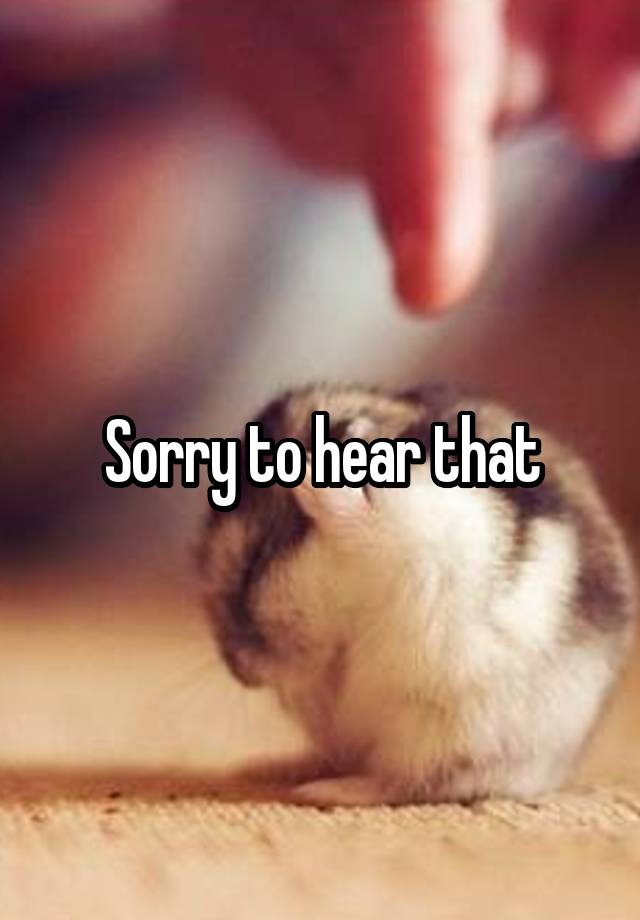
Sorry to hear that
Talk to Someone Who Is Sick In-Person. "I hope that you're aware of my unconditional love and support for you. I'm here if you need anything and I'll do my best to accompany you through all this.". "I want to help you with anything that makes you happier and fulfill everything that you need. You let me know.".
Sorry To Hear That iHeart
1. My heart goes out to you. 2. That must be tough for you. 3. I'm here for you. 4. That sounds really challenging. 5. I can't imagine how you must feel. Offering Support 6. Is there anything I can do to help? 7. I'm always here if you want to talk. 8. Take all the time you need; I understand. 9.
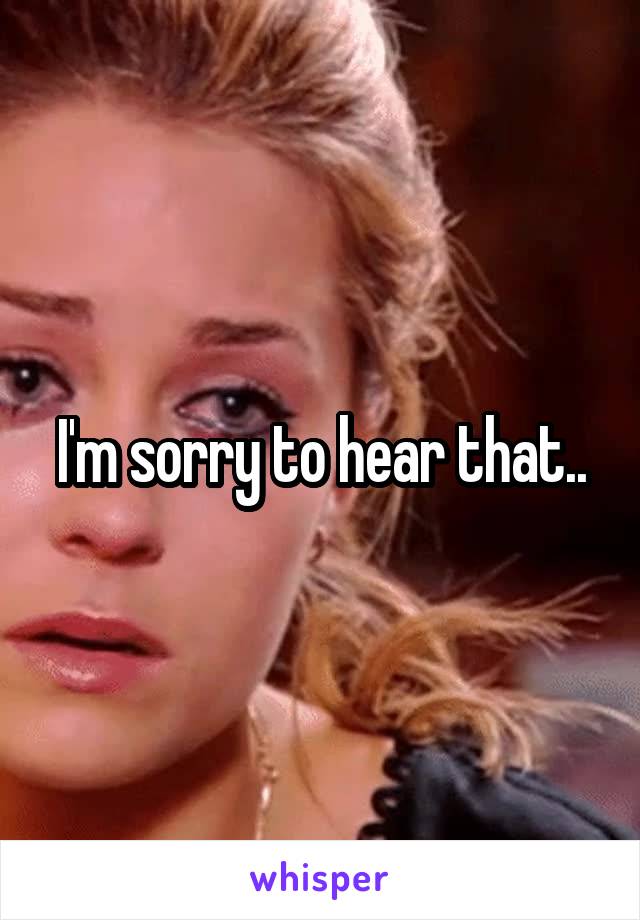
I'm sorry to hear that..
5. "Sorry" is mostly used as an apology now. But it has a wider meaning that is more common in the related * word "sorrow". "Sorry" means "full of sorrow". As an apology, it literally says "I am full of sorrow for doing something wrong". But it can still mean "full of sorrow" in other contexts. If you are told that someone has died, it is.